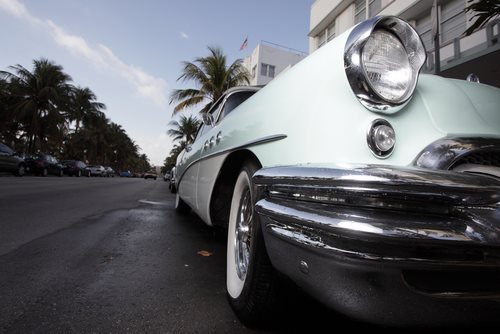Classic Car Insurance
What is Classic Car Insurance?
Classic car insurance is a special type of automobile insurance that is designated for cars over 25 years of age. Classic car insurance is offered as a separate insurance policy because a classic automobile is considered a valuable asset, which requires specialized protection.
Classic car insurance differs from traditional car insurance in that it is geared specifically toward the protection of older, typically more expensive automobiles, what are maintained and driven as a hobby or collectible. As a result of its use, classic automobiles do not serve as a primary, or even secondary, mode of transportation; classic cars are primarily restored and subsequently collected as pieces of art or as sentimental collectibles. Such characteristics fundamentally generate a need for a specialized form of insurance.
The majority of consumers believe that if a car is drive less it is cheaper to insure; this common misconception is irrefutably debunked in the case of classic car insurance. Automobiles that are driven for fun or are maintained as collectibles, such as the majority of classic cars (manufactured at least 25 years ago), require a much higher premium and insurance rate, when compared to primary or regular automobiles.
Why is Classic Car Insurance more Expensive than Regular Car Insurance?
Classic car insurance is more expensive than regular insurance because of the cost of repair. As a result of the age of the vehicle, when a classic car accident gets in an accident, the repair parts and service require special tills, excessive time and a specific supplier.
Dissimilar to regular cars, where universal or updated parts are readily available, a classic car requires specific parts that are primarily rare/expensive and a specific knowledge that may be considered esoteric. These characteristics translate to one simple statement: the average car-insurance policy is inadequate to repair or replace a damaged vintage, antique or classic car.
Types of Classic Car Insurance:
Three types of--cars, vintage, classic and antique-- can be insured under a classic car insurance policy. A vintage car is typically only a few decades old, such as a 1981 Ferrari, while classic cars are considered slightly older, such as a 1966 Mustang and antique cars, such as the Ford Model T or a 1925 Rolls Royce are considered very old. Regardless of the type of classic car insurance, each policy will typically offer more protection than regular car insurance. Furthermore, the purchaser of classic car insurance will enjoy a special rate reduction for periods of prolonged activity (winter months) that a regular car insurance policy would not provide for.
When purchasing classic car insurance it is crucial to evaluate and understand the quality of service and the terms of the coverage, specifically the price limit on parts. Additionally, the purchaser should be careful as to the agreed price valuation clause, which is invoked in the event that the car is destroyed or stolen—this clause may yield far less value than the true value of the car.
